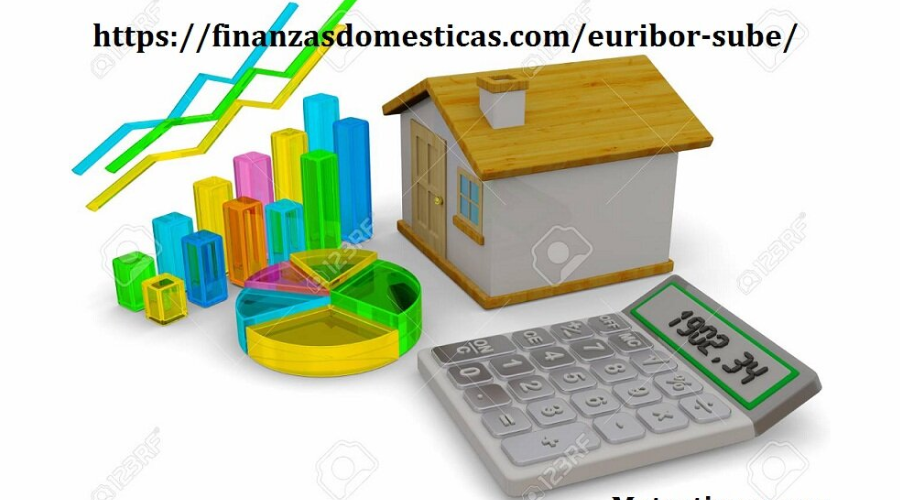The https://finanzasdomesticas.com/euribor-sube/ (Euro Interbank Offered Rate) is a fundamental benchmark for interest rates across Europe, influencing millions of borrowers and savers alike. When the Euribor rate increases, it can have widespread effects on personal finances, especially concerning mortgages and loans. This daily reference rate, determined by the average interest rates at which European banks lend to one another, is crucial in shaping the interest rates for various financial products, including mortgages, personal loans, and savings accounts. Grasping how a rise in the Euribor can impact your financial situation is essential for making well-informed financial decisions.
What is Euribor?
https://finanzasdomesticas.com/euribor-sube/ which stands for Euro Interbank Offered Rate, represents the rate at which European banks lend money to each other. Calculated daily by the European Money Markets Institute (EMMI), it reflects the average interest rates reported by a panel of European banks. Euribor is published for several maturities, ranging from one week to one year, with the three-month Euribor being the most commonly referenced.
How Euribor is Determined
The https://finanzasdomesticas.com/euribor-sube/ rate is established through a daily survey conducted by EMMI. A select group of European banks provides estimates of the rates at which they can borrow from other banks. These rates are then averaged, excluding the highest and lowest figures, to calculate the Euribor rate for the day. This rate serves as an indicator of the health of the banking sector and the broader economic conditions in Europe.
The Impact of Euribor on Mortgages
A notable consequence of a rising https://finanzasdomesticas.com/euribor-sube/ rate is its effect on variable-rate mortgages. These mortgages have interest rates that fluctuate based on the Euribor rate. As the Euribor rises, so do the interest payments on these loans, resulting in higher monthly mortgage payments for borrowers.
Variable-Rate Mortgages
Variable-rate mortgages are common in many European countries due to their typically lower initial rates compared to fixed-rate mortgages. However, these rates adjust with changes in the Euribor. Consequently, when the Euribor increases, borrowers with variable-rate mortgages face higher monthly payments, which can put a strain on household budgets.
Fixed-Rate Mortgages
Fixed-rate mortgages, on the other hand, are insulated from fluctuations in the Euribor rate, as their interest rates remain constant throughout the loan term. Nonetheless, rising Euribor rates can influence the overall interest rate environment, potentially making new fixed-rate mortgages more expensive.
Effects on Personal Loans and Credit
https://finanzasdomesticas.com/euribor-sube/ rate also impacts personal loans and lines of credit. Similar to variable-rate mortgages, personal loans with variable interest rates will see an increase in monthly payments as the Euribor rises. This can complicate debt management for individuals and families.
Consumer Loans
Consumer loans, including car loans and personal lines of credit, often have interest rates linked to the Euribor. As the Euribor rate climbs, so do the interest rates on these loans, leading to higher monthly payments and overall borrowing costs.
Credit Cards
Credit card interest rates can also be affected by changes in the Euribor rate. While many credit cards have fixed interest rates, those with variable rates will experience increased interest charges, making it costlier to carry a balance.
Impact on Savings and Investments
A rising https://finanzasdomesticas.com/euribor-sube/ rate can have varied effects on savings and investments. On one hand, savers might benefit from higher interest rates on savings accounts and fixed deposits. On the other hand, increasing rates can lead to volatility in investment markets, particularly affecting bonds and other fixed-income securities.
Savings Accounts
As the Euribor rate goes up, banks may offer higher interest rates on savings accounts and fixed deposits to attract more deposits. This can be advantageous for savers looking to earn more from their funds.
Investment Markets
Higher interest rates generally lead to lower bond prices, as existing bonds with lower rates become less attractive compared to new issues. This can result in losses for bond investors. However, rising rates can also signal economic growth, which might be beneficial for equity markets.
Strategies to Mitigate the Impact
To manage the effects of rising Euribor rates on your finances, consider employing several strategies. These include refinancing loans, opting for fixed-rate products, and diversifying investments.
Refinancing Loans
Refinancing existing variable-rate loans into fixed-rate loans can provide stability and predictability in monthly payments, helping to manage cash flow better in a rising rate environment.
Locking in Fixed Rates
For new loans, choosing fixed-rate options can shield borrowers from future rate increases. Although the initial rate may be higher than variable rates, the predictability can offer peace of mind and financial stability.
Diversifying Investments
Diversifying your investment portfolio can help manage risk in a rising interest rate environment. This could involve a mix of equities, fixed-income securities, and alternative investments to balance potential losses in one asset class with gains in another.
The Role of Central Banks
Central banks, such as the European Central Bank (ECB), play a significant role in influencing the Euribor rate. Their monetary policy decisions, including adjustments to key interest rates and quantitative easing measures, can impact the overall interest rate environment.
Monetary Policy and Euribor
The ECB’s monetary policy decisions directly affect the Euribor rate. When the ECB raises its key interest rates, borrowing costs for banks increase, leading to higher Euribor rates. Conversely, a reduction in the ECB’s rates generally results in a lower Euribor.
Quantitative Easing
Quantitative easing (QE) is another tool used by central banks to influence interest rates. By purchasing large quantities of financial assets, such as government bonds, central banks can inject liquidity into the economy and lower interest rates, including the Euribor.
Global Economic Conditions
Global economic conditions also impact the Euribor rate. Factors such as inflation, economic growth, and geopolitical events can affect the rates at which banks are willing to lend to each other, thereby influencing the Euribor.
Inflation and Economic Growth
High inflation typically leads to higher interest rates, including the Euribor, as central banks raise rates to control inflation. Conversely, during periods of economic slowdown, central banks may lower rates to stimulate growth, leading to a decrease in the Euribor.
Geopolitical Events
Geopolitical events, such as political instability or international conflicts, can create uncertainty in financial markets, affecting the Euribor rate. Banks may become more cautious in lending, leading to higher rates.
Conclusion
Understanding the implications of a rising https://finanzasdomesticas.com/euribor-sube/ rate is crucial for effective financial management. By staying informed and implementing strategies to mitigate its effects, individuals can navigate the challenges of a fluctuating interest rate environment. Whether through refinancing loans, locking in fixed rates, or diversifying investments, there are actionable steps that can be taken to protect and enhance financial well-being.
FAQs
What is Euribor and why is it important?
Euribor, or Euro Interbank Offered Rate, is the rate at which European banks lend money to each other. It is vital because it serves as a benchmark for interest rates on various financial products, including mortgages and loans.
How does a rise in Euribor affect my mortgage?
An increase in Euribor raises the interest rates on variable-rate mortgages, leading to higher monthly payments.
Can I switch from a variable-rate to a fixed-rate mortgage?
Yes, many lenders offer options to refinance from a variable-rate mortgage to a fixed-rate mortgage, providing more stability in monthly payments.
What should I do if my loan payments increase due to a higher Euribor rate?
Consider refinancing to a fixed-rate loan, budgeting for higher payments, or consulting with a financial advisor for tailored strategies.
Will higher Euribor rates impact my savings account?
Yes, higher Euribor rates can lead to increased interest rates on savings accounts and fixed deposits, benefiting savers.
Explore the latest insights and updates on tech trends at Bunkknot.org.

